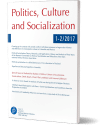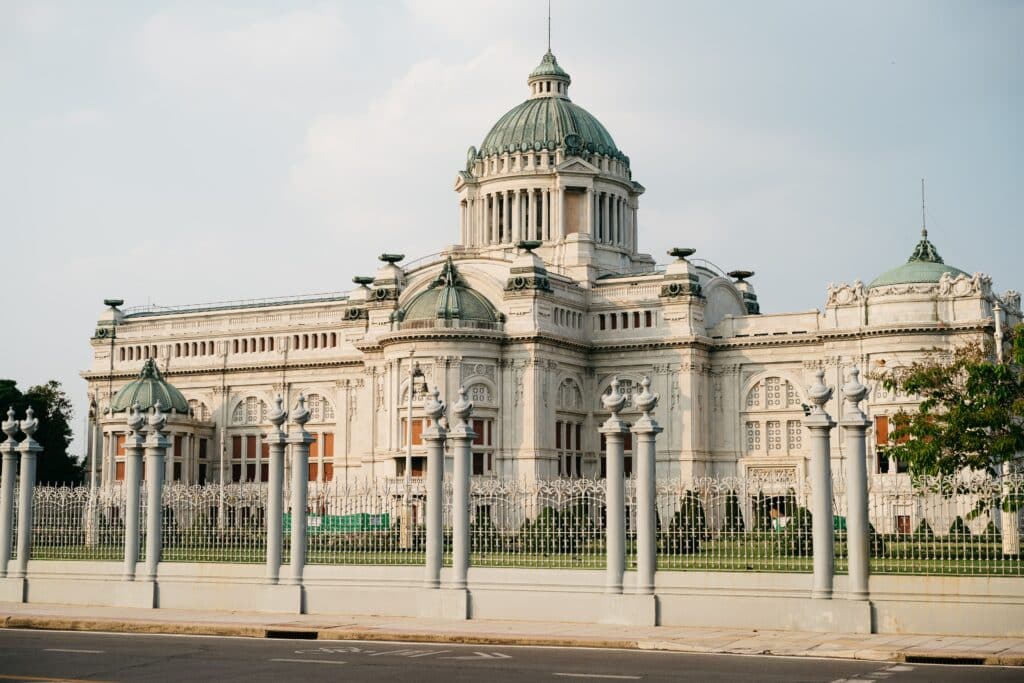Political socialization in a failed democracy: Civic education in Thailand
Murray Print
PCS – Politics, Culture and Socialization, Issue 1+2-2017, pp. 81-94
Abstract:
In 1932 Thailand became a constitutional democracy with a traditional monarchy. Since then the country has experienced twelve ‘successful’ military coups d’ etat to make it one of the most coup prone nations in the world and an unstable democracy. This paper analyses an opportunity for schools in Thailand to contribute significantly to the political socialization of young Thais as a means to address the persistent failure of the country’s democratic procedures. Non-school factors, such as authoritarian family characteristics, may negate school attempts to instill democratic behavior. Although civic education in Thai schools appears to have largely failed, the Democratic Citizenship Education Curriculum Project, developed by, with and for Thais, provides schools and teachers with the opportunity to develop democratic citizens through the school socialization process.
Keywords: political socialization, democracy, democratic citizenship education
“Democracy has to be born anew every generation, and education is its midwife.” (John Dewey)
Since 1932, when a constitutional democracy based on a traditional monarch was proclaimed, there have been 12 “successful” military coups d’etat and 7 “unsuccessful” ones, making Thailand one of the world’s most military coup-prone nations and a failed democracy. However, democracy is not a natural condition. It has to be learned. And where, how much, when, and in what ways it is learnt helps determine a person’s understanding and practice of democracy. In Thailand, like most countries, civic learning and civic action opportunities within school contexts are intended to promote the development of active and informed democratic citizens. Yet the evidence suggests that this is not the case in Thai schools.
This paper asks how school education, especially civic education, can contribute to the political socialization of young Thais in order to strengthen democracy in Thailand. It reports on a unique project in political socialization in a failed democracy to build a base for political and democratic stability through creating an educational program that counters decades of political instability and military intervention. Specifically in the context of the Thai Democratic Citizenship Education Curriculum Project the paper addresses the question – How can Thai schools contribute to the political socialization process of building citizens when democracy is more than a form of government but a way of life?
A century ago, John Dewey cogently argued for schools to serve as a key source for learning about democracy (Dewey, 1916):
“[…] a government resting upon popular suffrage cannot be successful unless those who elect and who obey their governors are educated. Since a democratic society repudiates the principle of external authority, it must find a substitute in voluntary disposition and interest; these can be created only by education. But [… a] democracy is more than a form of government; it is primarily a mode of associated living, of conjoint communicated experience.” (p.67)
By the standards of many Asian countries Thailand is a relatively wealthy nation with stable banks, internationally owned modern factories, a flourishing tourism industry, a growing, educated middle class and other typical markers of a successful democracy. With schools structured as Dewey suggests, supported by a school curriculum encouraging learning about democracy, Thailand should be a relatively stable constitutional democracy. Yet Thailand has had so many coups in its modern history that its democracy is anything but “successful” or stable. After the latest military coup of May, 2014, some four years on the junta is still in charge with a drawn out, multiple delayed, proposed election date aimed for February, 2019 and held on March 24.
Political socialization to stabilize Thai democracy
Thailand is in a political transition with the military government, from yet another coup, moving slowly towards an unclear form of “democracy”. A stable democracy is one where governments continue or change without coups d’etat and where informed and active citizens follow democratic processes and practices (Crick, 1998; Harber & Mncube, 2012; Macedo, 2005; Pasek, Feldman, Romer, & Jamieson, 2008). It is clear that the people of Thailand are not confident with their understanding and practice of stable democracy, a feature of Thai society for some time (Chachavalpongpun, 2014; Farrelly, 2013; Pitiyanuwat & Sujiva, 2005). To address this situation in the medium to long term, and to build a base for a stable democracy young Thais need to understand, value and practice democracy, a situation common to many democracies but more so to Thailand due to its fundamental political instability.
Thailand could be described as an on-going failed democracy, failing not because of a lack of desire and need for democracy but because it has been the subject of multiple military coups, frequently designed to protect the power of elites (Chachavalpongpun, 2014) or what Farrelly terms the “distinctive elite coup culture” (2013, p. 281). On average since 1932 Thailand has experienced a coup every four years given the 12 “successful” and 7 “unsuccessful” coups (Chachavalpongpun, 2014; Farrelly, 2013). The reasons for these coups are complex and multifaceted, but there is a fundamental persistence in Thai society that democracy is not valued as highly as in more successful democracies (Chachavalpongpun, 2014). Farrelly, (2013), for example, claims that “Put simply, the behaviour of senior members of Thailand’s armed forces, at repeated intervals over many years, suggests engrained anxiety about the quality and power of democratic institutions, and particularly the elected politicians who control them” (p. 289)
Thailand as an unstable democracy suggests, among other explanations, that Thai schooling has not successfully transmitted modern democratic values and knowledge to all its citizens (Pitiyanuwat & Sujiva, 2005) in ways found more readily evident in other democracies. One possible explanation for Thailand’s democratic instability may be found in the 2009 International Civics and Citizenship Study (ICCS) which showed Thai student democratic knowledge, skills and attitudes as well below international averages and amongst the lowest in Asia (Fraillon, et al., 2012).
This finding may be supported by case study research on civic and citizenship learning for democracy in Thailand that concluded that “It is evident that despite what the Thai education reform has been calling for, daily routines and enforcement of school rules in Thai schools tend to promote conservative values and priorities which have been maintained for decades.” (Boontinand & Petcharamesree, 2017, p. 48)
In preparing the next generation of democratic citizens international research has identified positive links between learning and practicing democracy through Civics and Citizenship Education (CCE) and more democratic citizens (Galston, 2004; Henderson & Tudball, 2016; Kahne & Sporte, 2009; Niemi & Junn, 1998; Reichert & Print, 2016; Saha & Print, 2010) who contribute to more stable democracies. From this base Thai educators can enhance Thai democracy by educating the next generations of young Thais about democratic practice.
* * *
 Would you like to continue reading? This article was published in issue 1+2-2017 of our journal PCS – Politics, Culture and Socialization.
Would you like to continue reading? This article was published in issue 1+2-2017 of our journal PCS – Politics, Culture and Socialization.
© Unsplash 2022 / image: Markus Winkler

